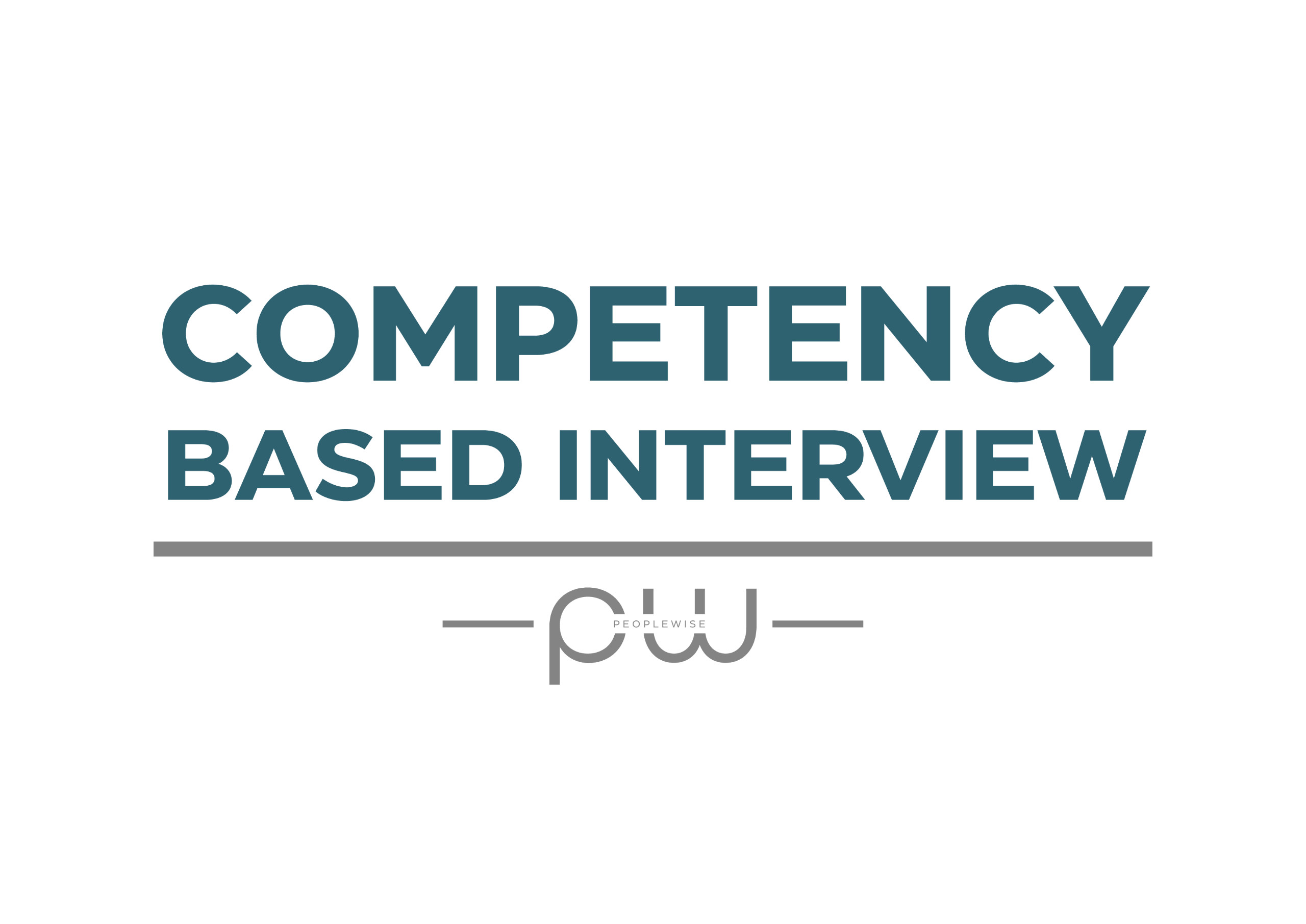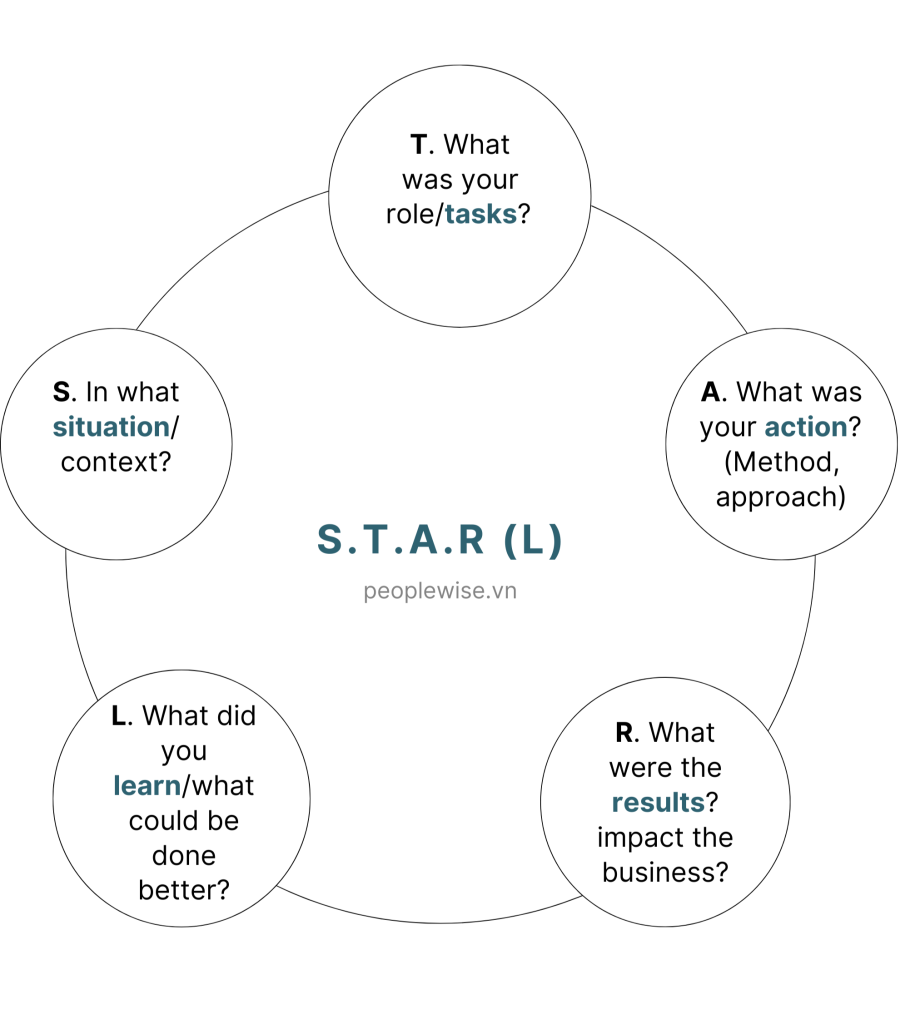Incorporating profiles with high potential into your organization is a critical aspect of recruitment. Competency-based interview is a crucial methodology and serve as an assessment tool in the talent acquisition process, aiding in the selection of candidates possessing essential qualities aligned with the company’s needs and priorities. Identifying the best-fit candidates who meet these competencies enhances organization’s competitiveness but it requires a great team effort.
Firstly, what is competency?
Competency can be described as a combination of abilities, knowledge, skills, and attributes that provide a clear definition of what is required for an individual, at each level, to effectively perform their specific role within an organization.
The definition of competency for a specific role varies based on the organization’s objectives at each stage of the business, its priorities, and the demands of that particular role. Typically, the competency framework is developed and categorized into three parts: Leadership, Technical (Expertise), and Core Values Competencies, which set expectations for employee behaviors to align with company core values, short-term and long-term business goals.

So, what is Competency-Based Interview?
A Competency-Based Interview, sometimes also called a behavioral interview, is a valuable assessment tool used in the interview process to help hiring managers or HR departments select potential candidates based on the required competencies targeted for the role. The methodology involves crafting each question to evaluate one or more specific skills or competencies demonstrated in the past. This methodology is reliable and used popular globally that increasing rate of ensuring successful job performance by the selected employee as well as reduce staff turnover rate.
Now, let’s explore the benefits for interviewers using competency-based interview:
- Reduces the risk in recruitment and aids in selecting the most suitable candidate with calculated risk.
- Helps hiring managers or HR professionals identify the key required competencies for the role and the priorities for selecting the most suitable candidate.
- Assists interviewers in using powerful questions to assess the candidate’s potential.
- Provides consistent, objective, fair, accurate, and reliable assessments.
- Develops confidence and professional interviewers with the structured interview with a designed questionnaire methodology.
To effectively implement this approach, PeopleWise’s experts recommend the following steps:
- Develop a competency dictionary tailored to your organization’s strategic positions. While specific competencies may vary between companies, some common ones include adaptability, strategy, leadership, and core values.
- Identify the competencies and the level of competency required for the specific role.
- Develop a set of questions for each competency, serving as a script to structure your interviews.
This process results in a guideline for conducting competency-based interview, ensuring alignment with your company’s HR strategy and professionalizing the recruitment process.
Before we proceed, it’s important to clarify that job competency encompasses the knowledge, skills, abilities, and attitudes necessary for successful task execution.
Is Competency-Based Interview Effective?
The primary objective of competency-based interviews is to identify the best candidate for a given position by assessing their potential through past behavior. This approach is rooted in the belief that past behavior can predict future actions. Competency-based interview questions are typically behavioral or situational, making them effective in follow-up interviews to address any hurdles.
Commonly, these questions begin with phrases like “Give me an example of…” or “Recall a time when you…”, prompting candidates to provide contextualized and truthful information about their experiences. Depending on the profile you seek, you can tailor the interview to assess performance, critical incidents, strengths, or a combination thereof.
It’s crucial to note that competency-based interviews should typically last around 30-45 minutes to ensure candidates remain engaged and provide valuable insights.
Why Use Competency-Based Interview? Pros and Cons to Business
Competency-Based Interviews require collaboration across various areas of an organization’s knowledge, turning them into a team effort to assess the candidate’s potential. While they offer numerous advantages, they also come with some disadvantages.
Advantages of Competency-Based Interviews:
- Enhance the alignment of selected candidates with the corporate strategy.
- Be easier to make assessment based on the key competencies required for the role.
- Improve ability to anticipate future behaviors in unforeseen circumstances.
- Facilitate the discovery of new talent.
- Greater productivity due to precise alignment with company needs.
Disadvantages of Competency-Based Interviews:
- Require thorough preparation and organizational effort in applying consistently.
- Develop a competency dictionary will spend time and effort.
- Require a system of tracking and assessing.

In the Competency Based Interview, how to get the necessary answers from candidates can be challenging in certain contexts. To address this issue, you can employ the S.T.A.R technique, which involves in asking the questions with S.T.A.R method to focus on the Situation, Tasks, Actions, and Results achieved. This technique can professionalize interviews and align them with your HR strategy and company objectives.
With each S.T.A.R answer, you can explore real-life situations that have occurred in the past experience of the candidate. This allows you to identify one or more competencies you are targeting. Be patient and stay on target when asking situational questions, as this will help you discover the competencies that the position requires.

The Competency-Based Interview Methodology can be a challenge for interviewers who are just beginning to learn how to use it effectively in order not to pose too much uncomfortable for candidates. Therefore, you can begin the interview with an open-minded attitude and help candidates understand that your interviewing method is competency-based and focuses on situations. Share your expectations for their cooperation during the interview to make it effective. This approach encourages candidates to share real experiences as much as possible, which helps you gather S.T.A.R answers that help you assess the required competencies and select the best fit for the role.
Written by PeopleWise Vietnam

PeopleWise Vietnam was founded with the mission of making positive impact on our community by improving the quality of labor, addressing workforce dynamics, and enhancing its effectiveness. During the initial phase of business, PeopleWise provided human resources consulting services, that align with each organization’s values and vision, driving business success.

